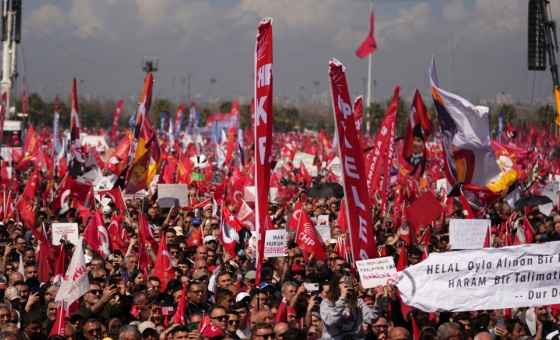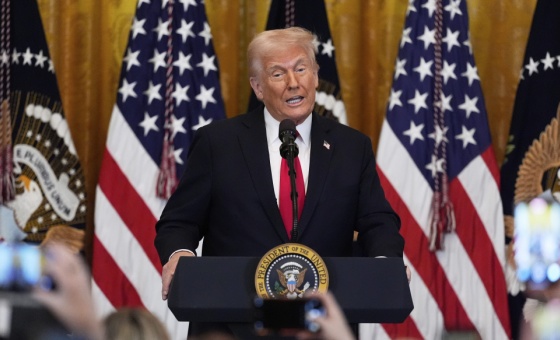This is the last article you can read this month
You can read more article this month
You can read more articles this month
Sorry your limit is up for this month
Reset on:
Please help support the Morning Star by subscribing here
BORIS JOHNSON is going. A divided Tory Party will battle away the summer as ministers battle for the crown.
We can already hear the lines from Labour: that the country cannot afford these divisions, we need a functioning government.
Actually our problem is the opposite. Through a constant stream of scandals, Boris Johnson’s government has not been distracted from its legislative programme, one bent on building a permanently more authoritarian state.
It has passed its Overseas Operations Act, making it harder to hold soldiers accountable for war crimes. Its Covert Human Intelligence Sources (Criminal Conduct) Act, granting almost unlimited powers to break the law to state agents if authorised by any of a bewildering array of state institutions.
It has passed its Police, Crime, Sentencing & Courts Act, dramatically restricting our right to protest. Its Nationality & Borders Act, intensifying the hostile environment for refugees and undermining the Geneva Convention.
In the pipeline it has a Public Order Bill imposing even harsher sentences on those taking direct action. A Bill of Rights eroding our protections under the Human Rights Act and the European Convention on Human Rights. An Online Safety Bill that is a recipe for sweeping state and corporate censorship of the internet.
Left to Westminster, all those will go through too. Johnson’s pitch to remain in office until the autumn might allow him to preside over them. If it’s denied him, there is no disagreement on any of it from his rivals.
Backbench Tory instincts mean the early stages of a leadership contest may actually see a further shift right. When Nadhim Zahawi agreed to replace Rishi Sunak as Chancellor, Westminster gossip had it that his price would be cuts to corporation tax — reversing government policy that is pushing wages down, or taking action to rein in soaring food and fuel bills, are not in the Conservative playbook.
Tough challenges from the opposition might, of course, wrench concessions from ministers keen to reset after Johnson and win the next election.
Unfortunately the opposition is not so much weak as broadly in agreement with Conservative policy.
Rebellious Tory MPs have hardly mentioned a policy disagreement with Johnson: the criticisms are about the lies, the sleaze, the piss-ups.
Labour does have policy differences with the government, but its critique too has focused on issues of competence and integrity (though its leader, who would never have won that position had he not promised to maintain Jeremy Corbyn’s socialist agenda and unite a party he has instead subjected to endless witch-hunts, has no more integrity than Johnson).
Labour does not support pay rises that match or exceed inflation, which means it is content for working-class living standards to fall. More importantly still, it — or at least its leadership — is actively opposed to the escalating union fightback on pay, instructing frontbenchers not to join picket lines.
Its attitude to action on the cost-of-living crisis is so half-hearted that despite calling for a windfall tax on energy companies to fund emergency relief for households, it then criticised the Conservative government when it conceded this for failing to assess whether it was good value for money. Its MPs then attacked Sunak for applying the emergency relief to every household, saying rich people would benefit too, leaving it to a Tory Chancellor to point out the merits for universal rather than means-tested benefits.
Sir Keir Starmer has made it clear he will not support nationalising energy, though a crisis in which household bills are soaring at the same time as corporate profits too cries out for this response, though it is supported by a majority of the public, and though he promised to support this when he stood for the Labour leadership.
Opposition to the government’s authoritarian and xenophobic agenda has been even weaker. Labour refuses to call the Rwanda deportations deal immoral or promise to end it. It supports greater police powers despite successive scandals around police violence, racism and sexism. It backs more online censorship, and it has not raised a murmur of protest over the planned deportation of journalist Julian Assange to the United States, the most important free speech case of our age.
And on the darkening international storm, there is not a cigarette paper between Labour and the Tories on more money for armaments and a policy of reckless confrontation abroad rather than attempting to defuse tensions and negotiate an end to the terrible conflict precipitated by Russia’s invasion of Ukraine.
I don’t point all this out to be the misery-guts failing to appreciate the exit of a callous, lying scoundrel from Downing Street, nor to argue that there is no point in trying to remove the Tories because Labour are as bad.
Rather to emphasise the point grasped by an ever greater number of workers, especially trade unionists: that the impetus for the change we need is not coming from Westminster.
After the brief interlude of Corbynism, where we actually had two different visions of how our society should be run presented at general elections, we are back to a period of cross-party consensus behind anti-working-class policies.
The Establishment’s ongoing anger at the threat it perceived in Corbyn has made that consensus even narrower, with Starmer going further than Blair ever did in trying to outlaw support for peace and socialism in the Labour Party.
The sense that this consensus lacks electoral support means non-politicians are being wheeled out to reinforce it. Formerly, serving generals commenting on policy decisions was frowned upon — but now, just as the bankers who wrecked our economy are presented as “experts” whose economic advice we must heed against our better judgement, the generals speak up for more arms spending and sharper confrontation with Russia.
The head of the army wanting more money for the army is utterly predictable at any time, but now it is presented as the “expert,” non-partisan view, and therefore impossible to challenge.
The Tory leadership contest intensifies the dangers. Ministers will jockey to appear the most gung ho to appeal to a sadly warlike Westminster audience; Pentagon insiders briefed even before Johnson’s death agony as PM that some of Foreign Secretary Liz Truss’s rasher lines on Ukraine were in their view motivated by the desire to succeed him.
They will also seek to appeal to a Tory Party that remains deeply wedded to Thatcherite economics and only accepted policies like “levelling up” and raising public investment because it was trying to compete with Corbyn’s Labour.
Sajid Javid said seeing off Corbyn would be Johnson’s greatest achievement when he gave his resignation speech.
The Westminster consensus is that that bid for a radical redistribution of power and wealth has been beaten. Tory and most Labour MPs (there are honourable exceptions, but they are a small minority) want to go back to “normal” — back to an economic status quo stacked against us in which the rich keep getting richer, privatisation and outsourcing eat our public services from the inside and ordinary people find it harder every year to keep a roof over their heads, the heating on and food on the table.
But that status quo is no more popular now than it was when Corbyn led Labour and the outpouring of support for national rail strikes last month — boosted by straight-talking media performances by RMT’s Mick Lynch and other union leaders that cut through the reflex propaganda of the talking heads — shows how widespread is the understanding that we have to fight for a different future.
Government policy can be changed, but it will not be unless the militancy and rising tide of industrial action we are seeing from multiple unions continues to mount.
Labour policy can be changed, but that too requires a sustained upsurge in trade union and community challenges to employers and government at all levels.
The sense that the people had had enough motivated the palace coup that has seen for Johnson. But it will take much more to secure a new deal for ordinary people.
 Ben Chacko
Ben Chacko










